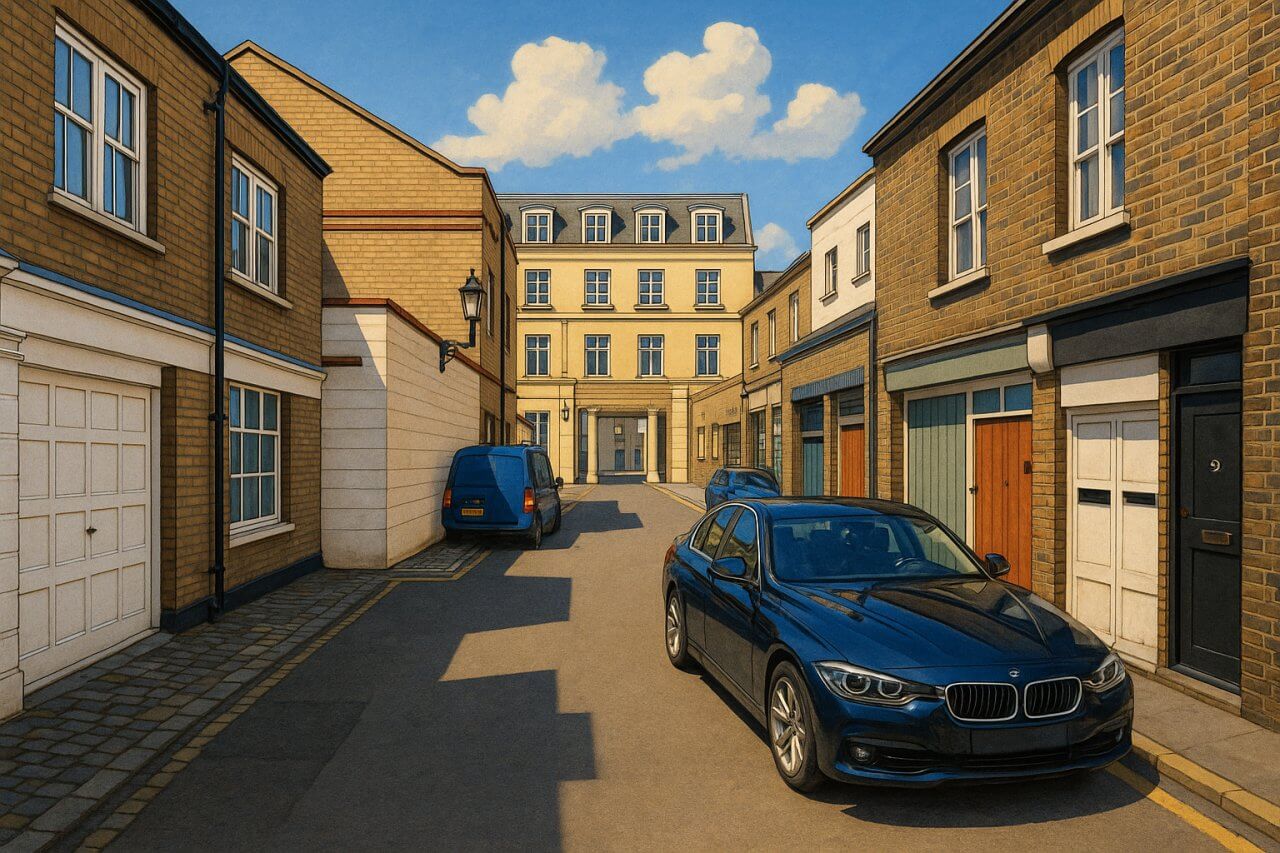
Harriet Walk, London
Harriet Walk is a quiet, residential backstreet located in Belgravia, within the Royal Borough of Kensington and Chelsea. This discreet one-way street is tucked between Seville Street and Lowndes Square, with traffic entering from the north-western end and exiting toward Lowndes Street to the south-east. There is also a branch road connecting Harriet Walk to Sloane Street. Although modest in length, Harriet Walk is a charming enclave of architectural elegance and historical character, only moments away from some of London's most prestigious landmarks.
Overview and Traffic Flow
Harriet Walk is a narrow, one-way residential street extending approximately 120 metres (about 394 feet). It begins at the T-junction where Seville Street meets the northern edge of Lowndes Square, and runs southeast to exit at the junction of Lowndes Square and Lowndes Street. Due to its limited size and exclusive nature, the road experiences very little through traffic, contributing to its private, almost hidden character.
History and Etymology
Harriet Walk was laid out in the mid-to-late 19th century as part of the urban development of Belgravia, one of London's most affluent districts. The street likely emerged during the Victorian period, coinciding with the expansion of London’s elite residential zones under the stewardship of the Grosvenor Estate, who owned much of the surrounding land.
The name Harriet Walk is presumed to honour a woman named Harriet—perhaps a member of the Grosvenor or connected noble families—although the specific namesake is not definitively recorded. The name Harriet is pronounced HA-ree-it, with the International Phonetic Alphabet spelling: /ˈhæɹiət/. 
Character and Atmosphere
Harriet Walk embodies the classic character of Belgravia: elegant, understated, and securely residential. The buildings along the street are primarily Victorian mews houses and converted coach houses, reflecting their original utilitarian function while offering modernised interiors. Many of the façades retain charming period details, such as brick archways, sash windows, and discreet ironwork.
The street is quiet, leafy, and imbued with a feeling of exclusivity. With no retail or commercial premises, Harriet Walk provides an oasis of calm in a bustling central location. It is highly prized by professionals, foreign buyers, and those seeking a pied-à-terre in London.
Local Sights and Attractions
While Harriet Walk itself is residential, its proximity to some of London’s most desirable landmarks makes it a prime location for residents and tourists alike. Within a five-minute walk are:
- Hyde Park – One of London’s Royal Parks, perfect for walking, cycling, or boating on the Serpentine.
- Harrods – The world-famous luxury department store in Knightsbridge.
- Belgrave Square – A grand garden square lined with embassies and period mansions.
- Lowndes Square – An elegant residential square with classic white stucco-fronted townhouses.
In addition, Sloane Street’s luxury boutiques and fine dining options are just around the corner, making Harriet Walk ideal for high-end shopping and entertainment.
Property and Real Estate
As of May 2025, homes on Harriet Walk are among the most exclusive in London. Real estate values here reflect the scarcity of properties and the desirability of the location. A typical three-bedroom mews house on the street averages around £4.5 million, with internal floor areas typically between 1,800 to 2,200 sq ft (167–204 sq m).
Compared to the London-wide average (which in early 2025 sits near £530,000 for a flat), Harriet Walk is part of the ultra-prime market, particularly attractive to overseas buyers and professionals working in finance, diplomacy, or media.
Transport and Accessibility
Nearest Underground Stations
- Knightsbridge Station (Piccadilly line) – approximately a 6-minute walk.
- Sloane Square Station (District and Circle lines) – about a 12-minute walk.
- Hyde Park Corner Station (Piccadilly line) – about a 10-minute walk.
Nearby Bus Stops
Bus services operate along Knightsbridge and Sloane Street, both within a short walk of Harriet Walk. Key routes include:
- Route 9 – Hammersmith to Aldwych.
- Route 19 – Battersea to Finsbury Park.
- Route 22 – Putney Common to Oxford Circus.
- Route 137 – Streatham to Marble Arch.
Night buses also operate in this area, making it convenient for late-night travel.
Fun Fact
Although lesser known than many of Belgravia’s grander addresses, Harriet Walk has occasionally been the setting for fashion photoshoots and discreet celebrity sightings due to its picturesque backdrop and central yet secluded position. Its charming mews aesthetic has made it a favourite location for luxury lifestyle publications looking to capture London’s timeless elegance.
Quick Facts
- Location: Belgravia, Royal Borough of Kensington and Chelsea
- Street Length: Approx. 120 metres (394 feet)
- Traffic Direction: One-way (north-west to south-east)
- Nearest Underground Stations: Knightsbridge (Piccadilly), Sloane Square (District & Circle)
- Nearby Bus Routes: 9, 19, 22, 137
- Architectural Style: Victorian mews houses and coach houses
- Property Prices: Approx. £4.5 million for 3-bed homes (May 2025)
- Property Size: Around 1,800–2,200 sq ft (167–204 sq m)
- Nearby Attractions: Hyde Park, Harrods, Lowndes Square, Belgrave Square
- Pronunciation: HA-ree-it /ˈhæɹiət/
- Fun Fact: Used as a backdrop for fashion photography and luxury shoots
Map of Harriet Walk, London

Painting of Harriet Walk, London (View image in full size)